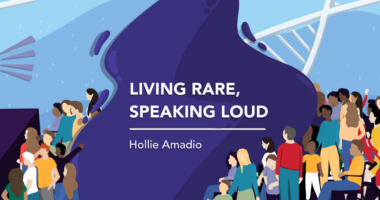FDA OKs sebetralstat, now Ekterly, as oral on-demand HAE therapy
Kalvista medication is first new treatment approved in US in over 10 years

The U.S. Food and Drug Administration (FDA) has approved sebetralstat for the on-demand treatment of swelling attacks in adults and children, ages 12 and older, with hereditary angioedema (HAE), its developer Kalvista Pharmaceuticals announced.
Sebetralstat will be sold under the brand name Ekterly, and is the first and only oral on-demand treatment for HAE. It’s also the first new on-demand HAE treatment to be approved in more than a decade, Kalvista said in a company press release.
“The FDA approval of Ekterly is a defining moment for people living with HAE,” said Ben Palleiko, CEO of Kalvista. “Ekterly has the potential to become the foundational treatment for HAE and our focus now is on delivering it to the people who need it.”
Kalvista plans to launch Ekterly in the U.S. immediately, and physicians can start prescribing it today.
The company has established a comprehensive patient support program called Kalvista Cares, which will offer personalized services and resources for eligible patients, including assistance with navigating access and insurance coverage. According to the drug’s webpage, there will be a copay assistance program for commercially insured patients, through which eligible individuals may pay as little as $0 for a prescription.
Meanwhile, the oral medication is still under regulatory review in Japan, the European Union, and elsewhere.
The therapy’s approval was welcomed by patient advocacy groups.
“As the first orally administered on-demand therapy for HAE attacks, Ekterly provides patients and physicians with an important and welcome advance in HAE treatment options,” said Anthony J. Castaldo, CEO of the U.S. Hereditary Angioedema Association, known as the HAEA.
Other on-demand HAE treatments given by injections, not orally
The hallmark swelling attacks that characterize HAE are driven by excess production of a signaling molecule called bradykinin. These attacks can occur without warning and affect any part of the body, including the airways.
Ekterly works to reduce the severity and duration of HAE attacks by blocking the activity of kallikrein, an enzyme involved in bradykinin production. This helps lower bradykinin levels to control swelling.
The medication comes as 300 mg oral tablets, and it’s recommended that patients initially take two of them as soon as they recognize signs of an HAE swelling attack. Additional doses can be taken later on if the first dose is not sufficient.
This is an important moment for patients, giving people living with HAE a treatment option that could provide greater independence and control over managing their condition.
This treatment method is in contrast to other on-demand HAE therapies, which are all given by under-the-skin (subcutaneous) or into-the-vein (intravenous) injections. The oral option may ease the treatment burden for HAE patients who require lifelong access to on-demand medications, advocates say.
“This is an important moment for patients, giving people living with HAE a treatment option that could provide greater independence and control over managing their condition,” said Marc A. Riedl, MD, professor and clinical director for the HAEA Center at the University of California, San Diego. Riedl also served as an investigator for the Phase 3 KONFIDENT trial (NCT05259917) that supported Ekterly’s approval.
The physician noted that dependence on injectable medications, previously the only available treatment, can lead to delayed intervention.
“Having an oral option empowers patients to treat attacks early, which aligns with treatment guidelines and advances our goal as physicians to reduce the overall burden of disease,” Reidl said.
Phase 3 trial testing Ekterly safety, efficacy in children 2-11
Data from KONFIDENT and its extension study KONFIDENT-S (NCT05505916) showed that Ekterly began working quickly, with most people starting to see symptoms ease in less than two hours. Further, 40%-50% of patients had complete attack resolution within a day.
Ekterly also demonstrated an ability to ease swelling affecting the voice box, which can block the airways and be life-threatening, as well as reducing severe or very severe attacks. In the majority of cases, a single dose was sufficient for the start of symptom relief.
Many patients on injectable on-demand therapies don’t carry their medication at all times, which results in a delay of about 3.8 hours to treat an attack, data had shown. With Ekterly, the median time to treatment in the KONFIDENT-S trial was 10 minutes.
Ekterly also was found safe and well tolerated in the clinical studies testing it. According to its prescribing label, the most common side effect is headache.
Kalvista has also been working on developing an oral disintegrating tablet (ODT) formulation that dissolves on the tongue. The company said earlier this year that it was transitioning KONFIDENT-S participants to this novel formulation to support an application filing next year.
The ODT formulation is also being used in the fully enrolled Phase 3 KONFIDENT-KID (NCT06467084) trial, which is assessing the safety and efficacy of Ekterly in children ages 2-11 with HAE. That trial is set to finish in 2027, and should the data be positive, it could support a label expansion for younger children, according to Kalvista.








